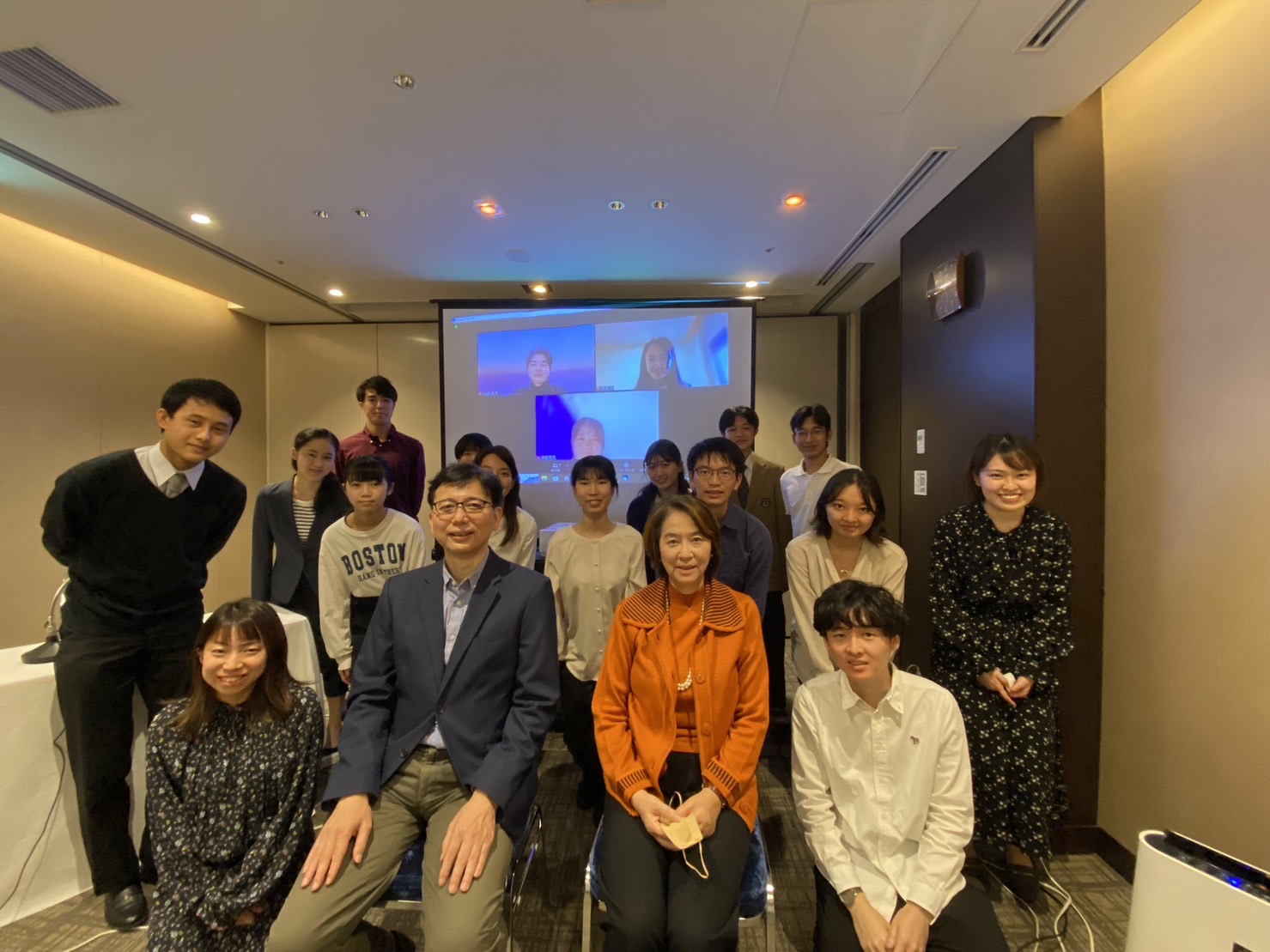- HOME
- Activities
- Forum List
- Forum Details
October.15.2022 KIP October Forum "The Kishida Administration's Policy Priorities -Centering in on Foreign Policy"

Mr. Noriyuki Shikata, Cabinet Secretary for Public Affairs
【Speech and Q&A】
As the lecturer of the October forum, KIP welcomed Mr. Noriyuki Shikata, a distinguished member of the KIP Board of Directors, who serves as the cabinet secretary for public affairs under the current Kishida administration. Mr. Shikata accompanies the Prime Minister in every overseas visit, playing a crucial role in conveying the administration's policies and values to international society. In the speech, he shared with us his knowledge, acquired through interaction with foreign media, on Japan's role in and further contribution to international society. The following debate addressed the significance and means of expanding the "digital garden city project", one of Kishida administration's major policies, outside of Japan.
Mr. Shikata gave a speech titled "The Kishida Administration's Policy Priorities -Centering in on Foreign Policy". The Kishida administration's foreign policy upholds "Realism in a new age", "The Indo-Pacific strategy" and "A world without nuclear weapons" as its core values. Prime Minister Kishida has shown a strong will to succeed the former prime ministers' efforts in cooperating closely with the US, the "Quad" and the ASEAN to realize a free and open Indo-Pacific. On the other hand, the administration will cooperate with the ruling party to increase its security expenses given Japan's extreme and vulnerable environment, especially that exposed by the invasion of Ukraine, rising tensions in Taiwan and North Korea's nuclear activity. Mr. Shikata emphasized the need for Japan to continue working, however difficult it may be, towards a "world without nuclear weapons" as the only victim nation of nuclear warfare. As Japan hosts the G7 Summit next year in Hiroshima, I would like to look forward to Prime Minister Kishida's leadership in bringing together nuclear powers and non-nuclear powers in the denuclearization process. Participants raised questions about food and energy security, along with the reform of the UN Security Council, which are all crucial issues brought up especially by the Russian invasion of Ukraine. Mr. Shikata recognized the importance of such issues and stressed the need to cooperate with “like-minded nations”, to balance out the various strategies of the UN superpowers.
The speech also addressed the digital garden city project as originally deriving from the British industrial revolution, which aimed to reform industrial cities by encompassing the aspects of suburban cities. Japan is aiming to transform the British plan by focusing more on rural areas and implementing digital resources to energize local communities rather than to merely rely on Tokyo as the economic nucleus.
【Group discussion and Ground discussion】
The following discussion addressed the question “How can Japan expand its digital garden city project internationally?” While the majority of groups reached the conclusion that Japan should share its experiences and technologies earnt through economic development with currently developing societies. South East Asian nations, which are forecasted to follow Japan’s path in the experience of an aging society, are on the list. On the other hand, one group proposed that the realization of a digital garden city, especially focused on the creation of a comfortable and lenient studying/working space, within Japan could potentially bring in exchange students and international enterprises. This perspective is akin to the original British idea of a garden city, enabling one to fulfill their own way of living. As a whole, the discussion acknowledged the importance of making the best out of Japan’s strengths, represented by warm-hearted hospitality and a rich natural environment. Mr. Shikata commented on the need for various bodies (such as cultural figures) to join the project, so as to incorporate perspectives other than that of the official agencies. The discussion enabled me to understand the basics of diplomacy, especially the demand to discover one’s own strengths and utilize them within international society.
Tomoki Nonaka, University of Tokyo, Arts and Science, Sophomore


